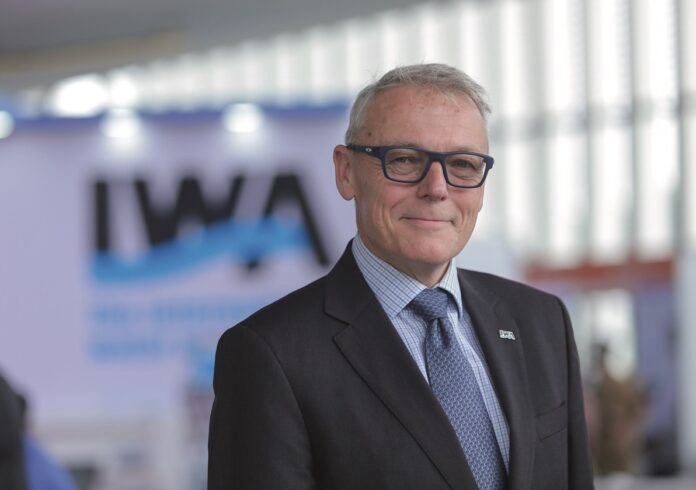For those in a corporate environment, the difficulties of implementing change are well known. In some cases, resistance to change is because we are naturally fearful: part of the brain – the amygdala – interprets it as a threat and releases the hormones for fear, fight or flight. We may also resist change because we perceive our power, prestige or financial interests are being challenged.
The mixed outcomes from COP26 in Glasgow show just how hard change can be to implement, despite clear evidence of human impacts on climate and that the consequences of this are so severe. Overcoming the denial and opposition to tackling climate change requires three things: dissatisfaction with our current state; a positive vision of the future; and concrete steps to make the vision a reality.
As water is an important medium through which we experience the impacts of global warming, climate change is of utmost relevance to IWA. Working to raise understanding, create and share knowledge, and initiate action are, therefore, part of our role and strategic plan.
On this last point, an important IWA programme being scaled up is the Climate Smart Utilities initiative. This will support water, wastewater and urban drainage companies in improving their resilience by adapting to a changing climate while contributing to a significant and sustainable reduction of carbon emissions. The initiative aims to deliver value to utilities and inspire the wider water professional community. It is being structured around three pillars:
- Communities of practice around adaptation and mitigation
- A web platform to support utilities sharing resources
- An IWA Climate Smart Utility Vision (that members can endorse) and recognition programme.
IWA members – utilities, consultants, technology suppliers and researchers – are already demonstrating and sharing practical steps for climate change mitigation and adaptation. For example, water efficiency and demand management are simple, proven approaches to deliver on both these objectives. Through communication and education, underpinned by promotion (or mandating) of water efficient technologies, customers can substantially reduce their water use. This not only responds to the issue of water scarcity, but also reduces energy use (and associated greenhouse gas emissions). For utilities, less energy is expended in capturing, pumping and treating water; for households, there is less energy heating water where efficient appliances are installed on taps and showers.
Leakage management by utilities also conserves water. Strategies being deployed include:
- Pressure management – reduction of excess average and maximum pressures
- Active leakage control – monitoring flows in metered areas to identify and repair leaks before they become a greater issue
- Pipeline and assets management – material selection, installation, maintenance, rehabilitation and replacement
- Speed and quality of repairs.
Other mitigation steps being taken worldwide include:
- Use of renewable energy for treatment processes and pumping
- Improving energy efficiency in processes and optimising system operation to best make use of availability of wind and solar power
- Biogas capture and co-generation at wastewater treatment facilities.
In English, there is an expression, to ‘cop out’, meaning to avoid doing something that one ought to do. Whether change is hard, or easy, water professionals will not cop out on climate change – and neither will IWA.
Tom Mollenkopf, President, IWA







